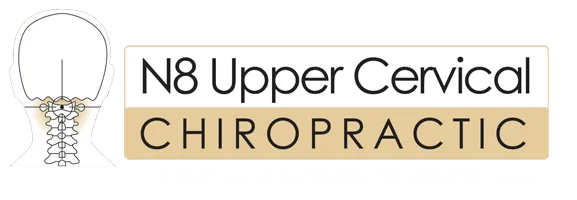Meniere’s disease can be extremely debilitating. It can negatively impact your life quality and cause you to miss out on important social, family, and work events. The symptoms of Meniere’s can be quite incapacitating:
Fluctuating hearing loss that becomes worse over time, even becoming permanent if not cared for properly
A feeling that you or the things around you are spinning when there is actually no movement (vertigo)
Episodes of vertigo happen spontaneously, can last 20 minutes to several hours (no more than 24) and can bring about nausea and vomiting
A ringing, buzzing, or hissing noise in the ear (tinnitus)
Mental and cognitive fog
A feeling of fullness, congestion, or pressure in the affected ear
Usually only one ear is affected
Meniere’s disease usually occurs in those in the age range of 20 to 50. However, it can hit anyone at any age. Episodes of vertigo can be constant, or they may come and go. Everyone experiences this condition differently. It seems as if flare-ups are seen more often during allergy season. This may be why the sufferer feels such a horrible, clogged feeling in their ears. It is not so much that the allergy is the cause; rather, the irritation from the allergy causes the eustachian tube, which is already under stress, to be further impacted.
Meniere’s Disease: The Progression of Symptoms
When considering the symptoms of Meniere’s disease, it is important to understand these do not reflect the whole picture. The symptoms of Meniere’s can change depending on what stage of the condition you are in. Meniere’s actually has before, during, between, and after the attack stages. There is also something referred to as the late-stage of Meniere’s. Let’s see what each of these are and what symptoms accompany them.
An oncoming attack may be preceded by what is called an aura or a specific set of warning symptoms. By acknowledging these warning signs, you can move to a safe place for when the actual attack occurs. An aura can include:
A vague feeling of uneasiness
Headaches
Increased ear pressure
Dizziness or vertigo
Sensitivity to sound
Tinnitus
Hearing loss
The early-stage of Meniere’s includes:
Spontaneous, violent vertigo
Ear fullness (called aural fullness)
Tinnitus
Fluctuating hearing loss
The attack-stage is known for, in addition to the above-mentioned symptoms:
Trembling
Nausea and vomiting
Blurry vision
Eye jerking (nystagmus)
Diarrhea
Anxiety and panic
Cold sweats
Palpitations
Fast heart rate
After the attack, you often feel extremely exhausted and may need to sleep for a few hours to recover.
To learn more about the connection between head and neck injuries and vertigo download our complimentary e-book How to Naturally Relieve Vertigo without Drugs by clicking the image below:
In between attacks, many people remain symptom-free. However, others may continue to exhibit the following symptoms:
Clumsiness
A headache
Heavy head sensation
Difficulty concentrating
Being easily distracted
Appetite changes
Anger, fear, worry, and anxiety
Groping to find the right words
Diarrhea
Feeling faint or lightheaded
Fatigue or sleepiness
Sensitivity to sound
Sound distortion
Loss of self-reliance and self-confidence
A feeling of motion sickness, queasiness, or nausea
Vomiting
Problems with vision - blurring, bouncing, glare intensification, focusing, etc.
Feeling unsteady - suddenly falling, staggering, or stumbling, problems walking or turning in poorly lit areas, looking for something to hold onto when walking, and constantly looking down
Late-stage Meniere’s is not a point in time, but a set of specific symptoms. At this point you may notice:
More significant hearing loss that is more constant
More intense tinnitus and ear congestion
Vertigo is replaced with issues with your vision and balance
Drop attacks occur where you simply fall down without passing out
These symptoms can intensify when you are in low lighting, if you are fatigued, or if you are in visually stimulating environments
How Upper Cervical Chiropractic Care Helps Meniere’s Disease
The medical community is at a loss as to how to explain why Meniere’s disease happens. However, we can see a definite correlation between a nerve pathway that begins in the upper cervical spine and an abnormal alignment of the top two vertebrae in the neck. This interrupts the flow of information coming via the nerve pathways that control the tonicity muscles of the eustachian tube. Why does this come about?
If you have suffered a traumatic injury to the neck joints -- whiplash, a blow to the head or neck or anything that overstretches the neck muscles -- the neck joints no longer move as they should. This is due to the tightening of the cervical musculature, limiting the range of motion. Interestingly, Dr. Michael Burcon has done extensive research on this process and has discovered that around 14 years lapse before Meniere’s symptoms begin. So, the injury endured may have happened a long time ago. If the top bones of the neck, the C1 and C2 are misaligned, they negatively impact the central nervous system, resulting in eustachian tube dysfunction.
When you come to our office for an evaluation, we will take a complete patient history, do a neurological examination, and use specialized x-rays to help us determine where your exact misalignment is located. Once determined, we do not need to resort to popping or cracking the spine. Rather, we use a gentle method, encouraging the bones to move back into place more naturally. But the question is, does this method work?
A study helps answer this question for us. It observed 139 patients who had been diagnosed with Meniere’s disease. All of them had a misalignment in the bones of their upper cervical spine due to some type of previous trauma. They were given upper cervical adjustments according to their needs. The results? After only one or two adjustments, as many as 136 of these saw improvement in their Meniere’s disease, especially in vertigo. Two years later, they were still seeing relief from their symptoms.
To schedule a consultation with N8 Upper Cervical Chiropractic clinic, call (02) 8553-6218 or just click the button below.
If you are outside of the local area, you can find an Upper Cervical Doctor near you at www.uppercervicalawareness.com.


